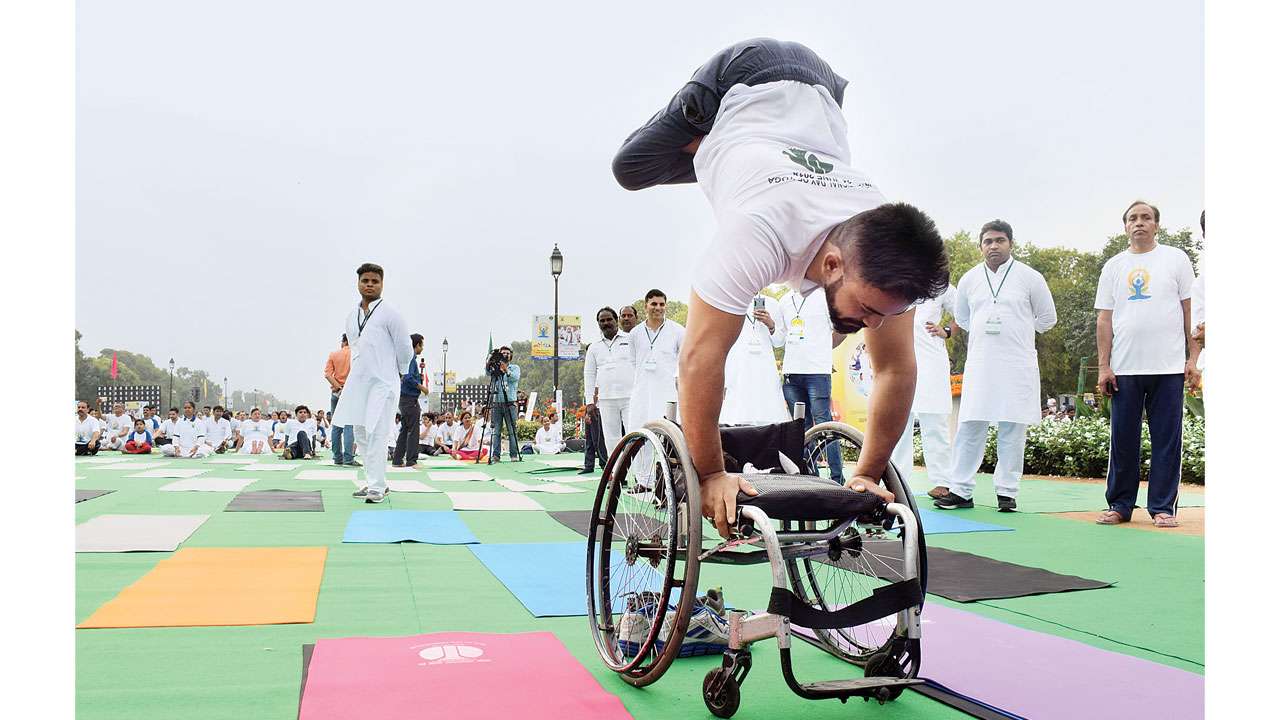
It’s been two years since the Rights of Persons with Disabilities (RPWD) Act, 2016, was passed by the Parliament. The act is truly a landmark event in the lives of persons with disabilities all across India.
It has provisions regarding accessibility, reservations, protection and seeks to empower persons with disabilities. But the law can’t change the life of the disabled, unless it is implemented.
Two years after the Act was enacted, it is yet to be notified by most states. About ten have notified the state rules under the RPWD Act, 2016. This not only reflects indifference towards persons with disabilities, but also reveals apathy towards basic human rights guaranteed by this Act.
If you are a person with disability, living in India can become an act of everyday struggle. If like me, you suffer from a locomotor disability, the fear of not finding a ramp or a lift can be debilitating. Buildings with only stairs, disabled-unfriendly bathrooms, roads with chaotic traffic and people constantly staring at you become part of daily experiences.
It is true that persons with different disabilities have varied experiences. A person on a wheelchair has a different bodily experience from a person with visual impairment. Nonetheless, there is a common shared experience that binds them together: the experience of being excluded and even marginalised.
The root of the problem often lies in the idea of ‘normality’. Everything around us is built on the normative ideas of an able-bodied world and thus for the disabled, everyday things are often inaccessible. For the society, persons with disabilities simply don’t fit into the predefined ideas of what is ‘normal’ and are thus either pitied or completely ignored.
There are many challenges that the disabled face. Even the process of getting a disability certificate is full of obstacles. Apathetic doctors, a callous bureaucratic government machinery and lack of awareness make life very difficult. Getting to school is even harder. In ‘special schools’, the quality of education and attitude towards the disabled students remain dismal.
If one somehow gets over all these hurdles, finding a job for a person with disability can be a traumatic experience. There are only a handful of organisations across sectors willing to accommodate the needs of the disabled or treat them as equals.
The situation gets worse depending on the caste, class and gender of the person. But, even if you are privileged, you are still excluded and marginalised in one form or the other. The forms and ways of marginalisation may vary, but each adds to the everyday physical and psychological trauma.
Though laws in themselves won’t change the society’s perception towards the disabled, they will definitely make life more dignified.
By ensuring accessibility, promoting educational and job opportunities and preventing discrimination, the law can enable them to live a more fulfilling life. That, in turn could lead to a more visible and vocal disabled community, which may lead to a change in how they are treated and perceived in society.
The implementation of an Act like RPWD would at least work towards a better future for the disabled. It would ensure that roads and buildings are accessible and if not, people can raise their voice against it on a legal forum.
One of the more progressive aspects of the present law is that it makes harassment of a person with disability a crime. It also makes promises about livelihood and education. No matter how all this transcends on ground, this law will certainly enable persons with disability to assert themselves.
This law is a small step in that direction, but it cannot be effective unless it is notified and implemented by all states. It is essential that states come on board and urgently notify rules according to the Act. By not doing so, they are not only being indifferent towards persons with disabilities, but are also robbing them of their basic human rights.
Author is a disability rights activist